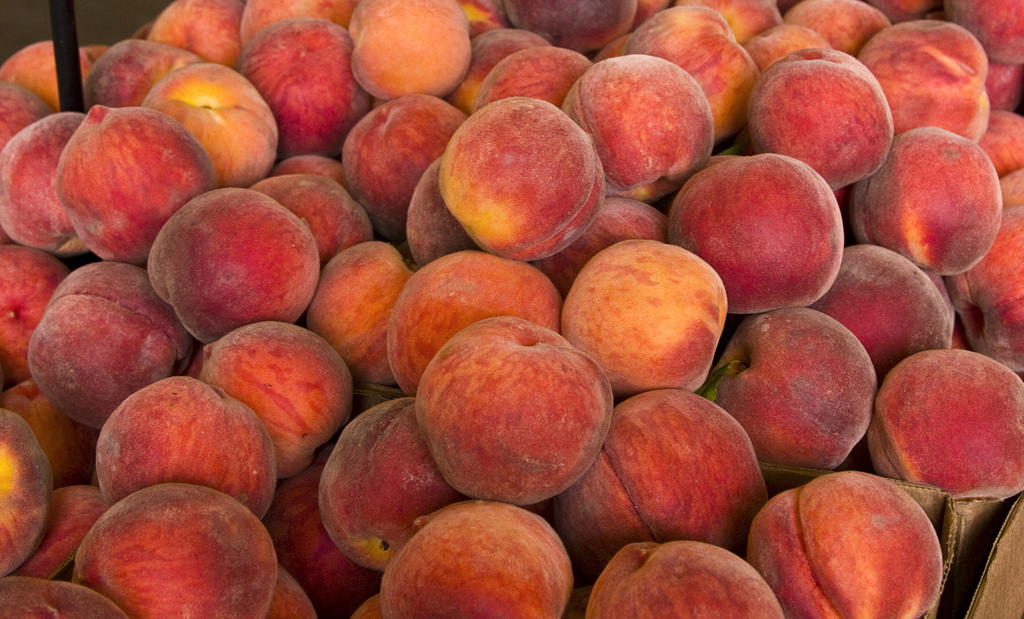Cory Penca, a Ph.D. candidate as well as a student in the Doctor of Plant Medicine program at the University of Florida, recently presented at the Stone Fruit Field Day in Citra, Florida. His presentation covered basic pest management tactics for scales, among many other pests of peaches.
Scales are difficult to manage because they have a waxy protective layer and they reproduce rapidly. The main scale species in Florida are San Jose scale and white peach scale, which cause similar damage and can be managed in much the same way.
Typically, the recommendation for controlling scales is to use two dormant Superior oil sprays per year. However, phytotoxicity and spraying during warm temperatures are concerns. It’s not recommended to use these oils when temperatures are below 25°F or above 68°F. In Florida, there’s not many times the temperature is consistently below 68°F, so it’s difficult.
“There’s also insect growth regulators, which are chemicals that affect the development of the scale pests,” said Penca. “These work really well. The only downfall is that they can be more expensive than other pesticides, and the key for scale control is good coverage. So, using a slower speed when your spraying and making sure you’re penetrating through the canopy and the entire tree is essential to scale management.”
Also, studies have shown pesticide use may lead to scale increases due to killing the natural enemies, including tiny parasitic wasps that attack scale. Therefore, Penca advises limiting pesticide use to protect natural enemies and to reduce scale problems.
Share this Post











